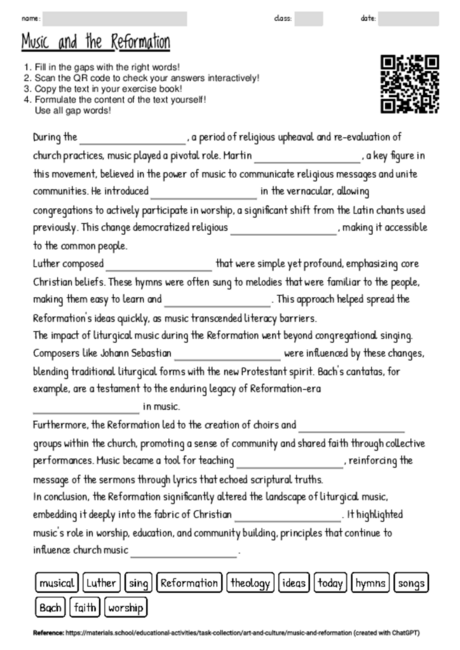Music and the Reformation
Cloze texts, like the one created on the role of liturgical music during the Reformation, serve multiple didactic purposes. They can effectively engage students in critical thinking, as they must understand the context and meaning of the text to identify the missing words. This particular text introduces students to the significant impact of music on religious reform, making the historical period more relatable and engaging through the universal language of music. It encourages students to explore the interplay between religion, culture, and music, fostering a deeper understanding of history. Furthermore, by focusing on key terms, students can better retain important concepts and figures, such as Martin Luther and Johann Sebastian Bach. This method also supports language skills development, as students practice reading comprehension and vocabulary in context. Additionally, the use of a cloze text in a classroom setting promotes collaborative learning, as students can work together to fill in the blanks, discussing their ideas and reasoning. Overall, this approach not only enhances knowledge of the Reformation and its influence on liturgical music but also develops critical thinking and collaborative skills.

